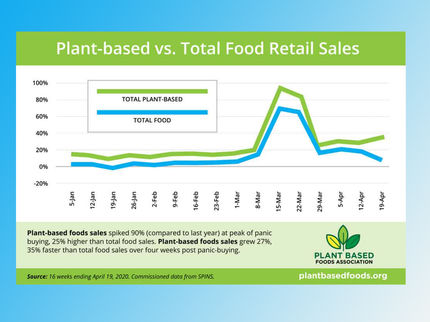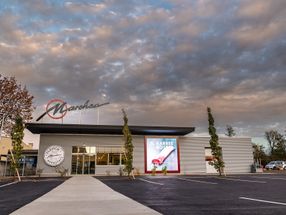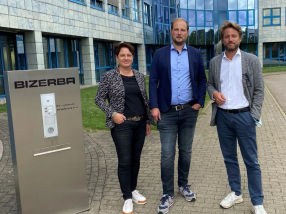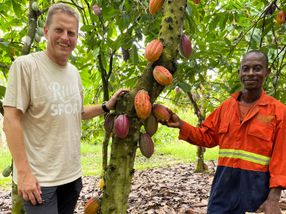Nestlé champions plant-based food with investment in Asia
Advertisement
Nestlé today doubled down on its plans to champion plant-based food in Asia with the inauguration of a production site for plant-based burgers, schnitzels, mince and more in Shah Alam, Malaysia.

Nestlé champions plant-based food with investment in Asia
Nestlé
The new facility has the capacity to produce 8,000 tons of plant-based food a year and will supply both food service and retail with the new Harvest Gourmet brand.
With production for plant-based food now online in China as well as Malaysia, Nestlé is looking to help lead the 'quiet food revolution' happening in Asia. More people are choosing plant-based options for a healthier lifestyle with less impact on the planet.
In a recent survey by GlobalData, over 40% of respondents in countries across the Asia and Oceania region said they were shifting towards more plant-based food. Eleven percent are now opting for a purely vegetarian or vegan diet, and a third are cutting down on their meat consumption by going 'flexitarian', centering their diets on plant-based foods without eliminating meat entirely.
Harvest Gourmet has already inked deals to supply global and regional restaurant chains including Element Fresh in China, KyoChon in Malaysia and Carl's Jr in Singapore. It will also supply growing demand in retail, starting in China with Tmall and Hema.
Giving people familiar flavors and dishes is really important to get more people to try meat alternatives, which is why Nestlé is making sure local products are designed for the Asian taste and local cuisine applications such as dumplings, stir fry, braising, katsudon, and more. In retail, first prepared dishes in China include plant-based versions of local classics like Gong Bao Chicken and Braised Meatballs.
Chris Johnson, Nestlé CEO for Asia, Oceania and Africa: "We're really going 'beyond the bun' to capture local tastes and convince people to try plant-based options. We believe that the more people embrace plant-based food, the better for them and the planet. That's why we are at the forefront of this shift and investing for the future."
Nestlé has invested strongly in Asia to support the growing interest in plant-based proteins. That includes the production facilities in Tianjin, China and Shah Alam, Malaysia, with the latter certified halal.
Globally, Nestlé has around 300 R&D scientists, engineers, and product developers dedicated to the research and development of plant-based products. To adapt the products to Asian consumer needs, the company leverages its R&D centers in Singapore, Beijing, China, as well as Manesar, India.
Food technologists, scientists, and chefs tailor the meat and dairy alternatives to local preferences through using regionally sourced ingredients and simplified recipes inspired by favorite dishes across Asia. Using proprietary technologies, they ensure the right texture, taste, and a superior nutritional profile. Working alongside food service experts, they also tailor out-of-home products for use in professional kitchens, taking into account their specific cooking and serving requirements.
Thomas Hauser, Head of Global Product and Technology Development at Nestlé: "We are continuously exploring new technologies and recipes to deliver a wide range of great-tasting, nutritious, and sustainable plant-based products for both our retail and out-of-home business. Our local innovation capabilities in Asia enable us to accelerate the innovation of outstanding plant-based alternatives that Asian consumers love."
Well known for its retail brands, Nestlé also has a strong business for restaurant and food service customers, from major chains to smaller cafés and bars. In collaboration with industry chefs, Nestlé in-house chefs develop menu applications in local cuisines to enable customers to delight their diners.
Tahira Shiraz-Longden, Vice President, Food - Nestlé Professional (Asia, Oceania and Africa): "With over 40 per cent of consumers in Asia choosing to eat less or no meat in their diet, the demand for plant-based foods is no longer a food trend, it is a social shift. Whether it is motivated by personal health or for a more sustainable planet, we are excited to bring our plant-based knowledge and expertise to this region and adapt to local tastes. We are confident that with its sensational tastes and textures, Harvest Gourmet will make the region fall in love with plant-based food."


































































